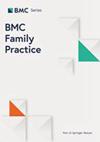2 型糖尿病患者在禁食模拟饮食计划期间自发改变生活方式:一项混合方法研究
IF 3.2
3区 医学
Q1 MEDICINE, GENERAL & INTERNAL
引用次数: 0
摘要
生活方式的改变,尤其是饮食质量和体育锻炼方面的改变,对 2 型糖尿病(T2D)的治疗非常重要。这项混合方法研究探讨了遵循定期空腹模拟饮食(FMD)的 2 型糖尿病患者自主改变生活方式的情况。定量数据来自 "糖尿病患者禁食治疗试验"(2018 年 11 月至 2021 年 8 月),其中 100 名仅使用二甲双胍或不使用药物的 T2D 参与者被随机分配到接受每月 5 天的 FMD,为期 12 个月,同时接受常规护理或仅接受常规护理。在基线期、6个月和12个月时填写饮食质量和体育锻炼问卷。采用线性混合模型对随时间推移的变化进行分析。与 FMD 参与者一起组织了焦点小组,以探讨有关自发改变生活方式的经验。定性数据采用理论领域框架进行分析。49 名 FMD 参与者和 43 名对照者提供了调查问卷。在饮食质量方面没有发现差异。从基线到 12 个月期间,FMD 参与者的总运动量从每周 34.6 小时增加到 38.5 小时/周,而对照组则从 34.9 小时/周增加到 29.0 小时/周(组间差异,p = 0.03)。在与 FMD 参与者(n = 20)进行的六个焦点小组讨论中,个别参与者认为 FMD 鼓励他们(略微)改变生活方式。行为改变没有与 FMD 相关的障碍。促进健康行为的重要因素包括:提高对生活方式对健康影响的认识(知识)、增强体质(体能)和改善健康(强化)。与 FMD 无关的促进因素包括家庭支持(社会影响)和邻里机会(环境背景和资源),而与 FMD 无关的障碍则是遇到健康问题(身体)和社会事件(社会影响)。在定量分析中,每月连续五天使用 FMD 不会影响 FMD 期间的饮食质量,但会增加每周用于体育活动的小时数。定性分析显示,使用 FMD 的个体参与者在饮食质量和体育锻炼方面都有了自我改善。医疗保健专业人员可将 FMD 计划作为 "教学时机",促进更多生活方式的改变。ClinicalTrials.gov; NCT03811587。注册日期:2019 年 1 月 22 日。本文章由计算机程序翻译,如有差异,请以英文原文为准。
Self-initiated lifestyle changes during a fasting-mimicking diet programme in patients with type 2 diabetes: a mixed-methods study
Lifestyle changes, especially regarding diet quality and physical activity, are important in the management of type 2 diabetes (T2D). This mixed-methods study explores self-initiated lifestyle changes in patients with T2D who followed a periodic fasting-mimicking diet (FMD). Quantitative data were obtained from the Fasting In diabetes Treatment trial (November 2018 to August 2021) in which 100 participants with T2D, using metformin only or no medication, were randomised to receive a monthly 5-day FMD for twelve months next to usual care, or usual care only. Diet quality and physical activity questionnaires were completed at baseline, six and twelve months. Changes over time were analysed using linear mixed models. Focus groups were organized with FMD participants to explore experiences regarding self-initiated lifestyle changes. The qualitative data was analysed using the Theoretical Domains Framework. Questionnaires were available from 49 FMD participants and 43 controls. No differences in diet quality were found. Total physical activity in the FMD participants changed from 34.6 to 38.5 h per week (h/wk) from baseline to twelve months, while in controls it changed from 34.9 to 29.0 h/wk (between group difference, p = 0.03). In six focus groups with FMD participants (n = 20), individual participants perceived the FMD as an encouragement for (minor) lifestyle changes. There were no barriers to behaviour change related to the FMD. Important facilitators of healthy behaviour were an increase in awareness of the impact of lifestyle on health (knowledge), better physical fitness (physical) and health improvement (reinforcement). Facilitators unrelated to the FMD included family support (social influences) and opportunities in the neighbourhood (environmental context and resources), while barriers unrelated to the FMD were experiencing health problems (physical) and social events (social influences). Using an FMD for five consecutive days per month did not affect diet quality in between FMD periods in quantitative analysis, but increased the number of hours per week spent on physical activity. Qualitative analysis revealed self-initiated improvements in both diet quality and physical activity in individual participants using an FMD. Healthcare professionals could use an FMD programme as a ‘teachable moment’ to stimulate additional lifestyle changes. ClinicalTrials.gov; NCT03811587. Registered 22 January 2019.
求助全文
通过发布文献求助,成功后即可免费获取论文全文。
去求助
来源期刊

BMC Family Practice
医学-医学:内科
CiteScore
3.20
自引率
0.00%
发文量
0
审稿时长
4-8 weeks
期刊介绍:
BMC Family Practice is an open access, peer-reviewed journal that considers articles on all aspects of primary health care research. The journal has a special focus on clinical decision making and management, continuing professional education, service utilization, needs and demand, and the organization and delivery of primary care and care in the community.
 求助内容:
求助内容: 应助结果提醒方式:
应助结果提醒方式:


